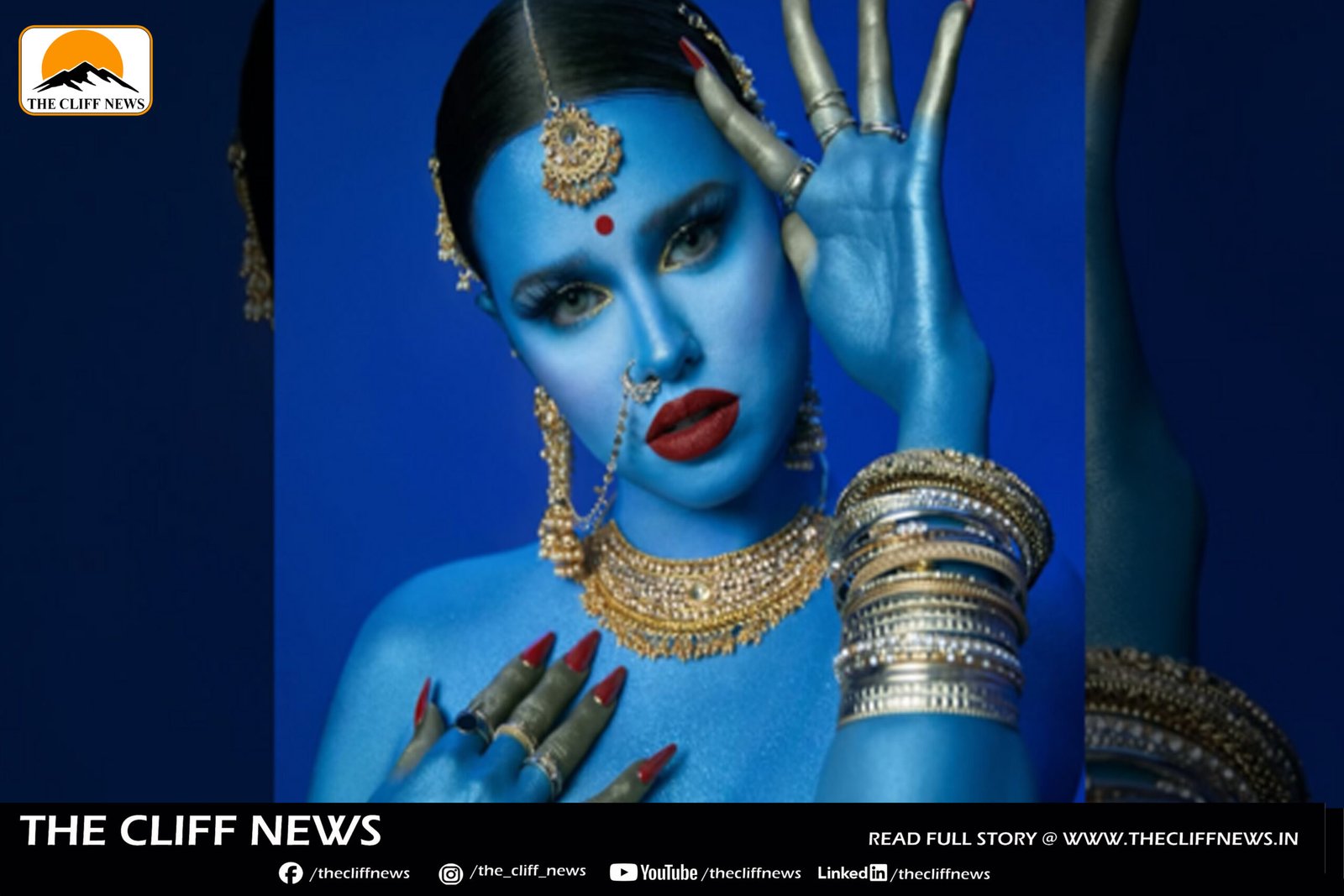Canadian rapper Tommy Genesis is facing intense backlash online after releasing the music video for her latest track True Blue, in which she appears dressed as the Hindu goddess Maa Kaali. The video, released over the weekend, has been criticised for cultural appropriation and religious insensitivity, with many calling it disrespectful towards both Hinduism and Christianity.
Controversial Portrayal
Tommy Genesis — whose real name is Genesis Yasmine Mohanraj — is of Tamil and Swedish descent. Known for pushing boundaries in her music and fashion, she has previously been hailed as “the internet’s most rebellious underground rap queen” by Dazed magazine. However, her depiction of Maa Kaali has drawn strong condemnation.
In the video, Genesis appears with:
- Blue body paint
- Gold maang tikka, bangles, and jewellery
- A red bindi
- A gold bikini and stilettos
At various points, she folds her hands in a Namaste gesture and licks a Christian crucifix, which many viewers saw as doubly offensive. The juxtaposition of sacred religious symbols with sexualised imagery and irreverent gestures quickly went viral, but not in the way the artist may have hoped.
Outrage Across Social Media
Outrage spread swiftly across X (formerly Twitter), Instagram, and YouTube.
One user remarked:
“Somehow you’ve managed to offend Christians and Hindus in the same video. Achievement.”
Others accused her of treating Hindu iconography as a fashion statement, saying:
“It’s become a trend to mock Hinduism for likes and views. If this were done to another religion, the outrage would be global.”
Criticism was not limited to Hindus. Christian viewers also expressed concern over her treatment of the crucifix, calling it “sacrilegious” and “cheap provocation.”
Instagram comments reflected similar anger:
“Ah yes, nothing says spiritual awakening like a bindi at Coachella. Stop using our culture for your aesthetic.”
“Appropriating Hindu culture is not art—it’s ignorance dressed up as creativity.”
No Public Response Yet
As of now, Tommy Genesis has not publicly responded to the backlash. The video remains live, but with a growing number of dislikes and angry comments calling for it to be taken down or at least for an apology.
This incident has reignited debates about cultural appropriation vs. artistic expression, with many arguing that religious and cultural symbols are not costumes or props for shock value.



